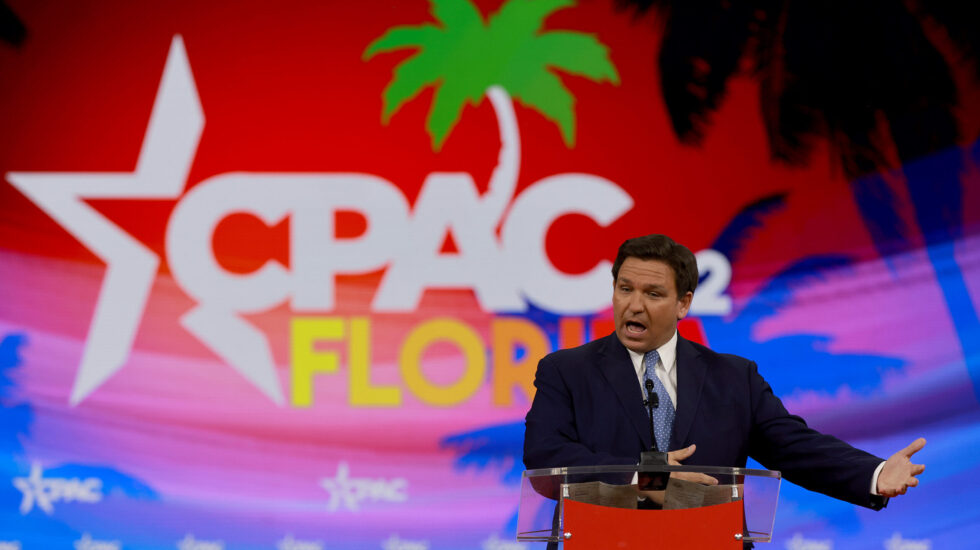In a clear act of political retribution, Florida Governor Ron DeSantis, a Republican, asked state lawmakers to use a special legislative session to cancel Disney’s limited self-governing rights. Hundreds of similar arrangements exist with other businesses in the state, which allows companies to eschew local taxes, certain bureaucratic requirements and state regulations.
DeSantis, one of the most opportunistic culture warriors in the country, has been peeved at Disney for its opposition to a new Florida law that prevents public school teachers from addressing sexual orientation or gender identity with young school children. The bill, widely seen as discriminatory against members of the LGBTQ community, has been dubbed “Don’t Say Gay.” Proponents insist its about honoring parental choice.
Disney, under pressure from LGBTQ employees, suspended political donations to Florida politicians in the wake of the legislation. Now, DeSantis and his Republican colleagues in the state legislature are seeking revenge.
“You kick the hornet’s nest and things come up. That’s the risk Disney took,” said Republican Rep. Randy Fine, who filed a bill that would dissolve Disney’s special status.
The Wall Street Journal adds:
Republican lawmakers in Florida said that the governor is seeking to punish Disney while there is still popular momentum to do so. If the bill were not introduced in a special session, any effort to repeal Disney’s benefits would likely have to wait until the Legislature reconvenes next year after elections.
“I think the governor has recognized the political moment and he’s seized it,” said Spencer Roach, a Republican state representative from Lee County.
Disney has enjoyed the self-governing rights for 55 years. It allows the company to build on its property without seeking state approval. Disney also funds its own fire department and medical response battalion. The arrangement saves them tens of millions of dollars a year, according to The Journal.
But Disney is also a major contributor to Florida’s economy. It employs approximately 80,000 people and helps draw 70 million tourists to Central Florida every year. When operating at full capacity, the theme park industry generates $5.8 billion in local and state tax revenue.
The Washington Post reports:
It is unclear what impact the proposal would have on Disney World’s operations. The company did not respond to requests for comment.
The bill to eliminate the special district passed GOP-majority state Senate and House committees Tuesday afternoon. Democrats called it an act of retaliation by a powerful governor that could have unintended consequences.
“If this isn’t the grandest form of bullying that I’ve ever seen, I don’t know what is,” state Sen. Janet Cruz (D) said. “I have this vision of a mousetrap that we’ve created, and I see us leaning on the neck of the mouse for 12 months, just to step on Mickey’s neck.”
Florida Senator Gary Farmer, a Democrat, said revoking Disney’s status as a special tax district would force local families to shoulder certain liabilities, which could result in a one-time tax assessment of $2,200. “This is shoot first and ask questions later,” he said.
The Post provides further context:
The Reedy Creek Improvement District is the official name of the 25,000-acre property that Walt Disney negotiated to buy in Central Florida in the mid-1960s. Disney sought as much control as possible over the land, and its lobbyists worked with state legislators to create the special taxing district. It is one of 1,800 special districts in Florida and allows Disney to oversee its property — which spans two counties and about 40 square miles — as a quasi-governmental agency, building roads and collecting taxes.
Republican sponsors of the legislation couldn’t answer questions Tuesday about whether the measure would leave local governments responsible for billions of dollars in infrastructure and other responsibilities in the district that Disney now pays for on its own.



